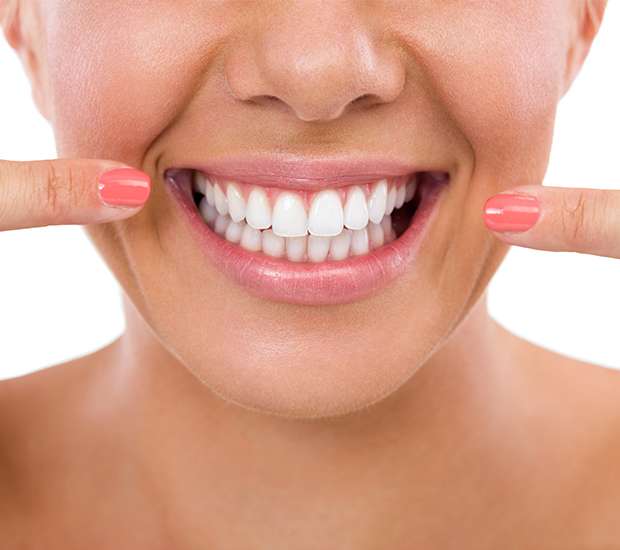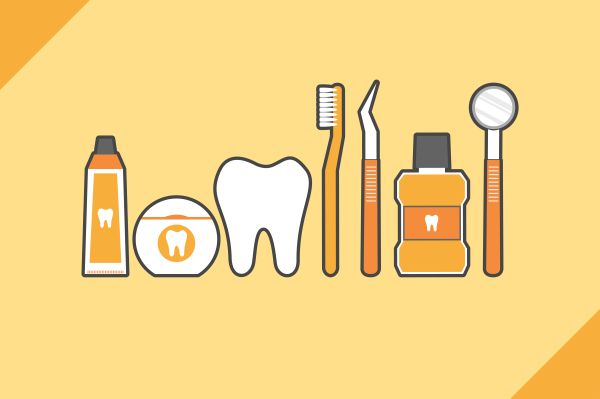What Is Gum Contouring & Reshaping Morristown, NJ
At Morristown Family Dental we speak with patients who are dissatisfied with the appearance or shape of their gums. While most people think of things like teeth whitening when considering how to improve their smile, the appearance of the gums also makes a significant impact. If you feel that yours are too large or have receded and are too small, call (973) 524-7702 and schedule an appointment with our dental office. We can examine you, make recommendations, and let you know whether we can assist you or if you should see a specialist. In the meantime, here are a few frequently asked questions about gum contouring and our answers to them.
What is gum contouring?
Gum contouring is a cosmetic procedure that can change the shape of your gums. A dentist can use this procedure to cut away excessive gum tissue that is giving you a "gummy" smile or to restore gum tissue that has receded and is now exposing too much of your teeth.
How do I know if I need gum contouring?
Typically, this is a highly personal decision that is made based on how you feel about your gums. If your gums are uneven, or they cover too much or too little of your teeth, then you may be a good candidate for gum contouring or gum reshaping. To find out, call 973-524-7702 and schedule an appointment with our dental office.
Is there pain associated with the procedure?
There can be, but you will be medicated during the procedure, which will reduce the likelihood of you feeling any pain. The amount of pain really depends on how much gum tissue is being cut away, shaped, or grafted. Additionally, the type of dental tools in the procedure will impact what your gums feel like afterward. Currently, dentists are using both scalpels and lasers to complete gum procedures.
What is the recovery time like?
This also heavily depends on the type of tools used to complete the procedure. When a scalpel is used for gum contouring, sutures will be necessary and there will be more overall irritation. Very often, lasers can treat the gums without cutting or sutures, decreasing the recovery time. Regardless, you will experience some swelling and discomfort afterward. You can manage it by applying ice packs to your face for 15 minutes at a time and using ibuprofen.
Are there any restrictions during recovery?
Yes. You will need to be careful with what you eat. Since your gums will be sensitive, you should avoid eating anything that is sharp or that could cut, poke, or irritate them in any way. For this reason, most people stick with a soft diet of yogurt, soup, ice cream or pudding for a couple of days. If your gum reshaping was performed using a scalpel, it is likely that you will be scheduled for a follow-up visit. At that point, your dentist will examine the gums to determine if everything is healing properly, and if it is, they will let you know when you can return to all your normal dietary habits. Additionally, you may be prescribed an antibiotic rinse to use in order to combat a potential infection, and when you do brush your teeth, you will need to do so very gently.
Is gum shaping different from gum contouring?
These terms are used interchangeably by dentists who perform them. Some may use contouring to describe the procedure with the use of a scalpel and reshaping when lasers are used. At the end of the day, the approach and objective are very similar. It is the tools that are different. The key is that if you want your gums to look different, it doesn't really matter which term is used, both contouring and reshaping can be an excellent solution.
Is this purely a cosmetic procedure, or is there a medical reasons for contouring and shaping?
That depends on why you want to schedule a gum reshaping. If you are calling our office because you suffer from gum disease, we will first examine you to determine if you have the condition, discuss your treatment options, and work to eliminate the actual disease. At that point, you may very well need a gum contouring procedure in order to restore gums that have receded and are now putting the health of your teeth, roots, and jawbone at risk. In a very real sense, gum contouring and grafting can help save your teeth.
While typically gum recession is caused by gum disease, you could also experience this due to excessive tooth brushing, taking a prescription drug, or even genetics. In this case, as with gum disease, restoring your gum tissue may become necessary for your optimum oral health.
Check out what others are saying about our gum contouring services on Yelp: What Is Gum Contouring and Reshaping Morristown
Will insurance pay for it?
That really depends on your insurance company and whether you are getting the procedure to restore gums ravaged by gum disease or if you are having it done to simply remove a gummy smile and improve your appearance. Typically, if it is for health reasons, the insurance company will pay for at least part of it.
What are the risks associated with gum reshaping?
You could get an infection or have a bad reaction to the anesthesia. If you have had surgery and anesthesia before, it is unlikely that you will have a bad reaction this time. Simultaneously, if you follow the aftercare instructions, your risk for infection will go down significantly.
What are my other options?
If you do not like the appearance of your smile, call (973) 524-7702 and schedule an appointment with our dental office. We can conduct a thorough examination and take X-rays before discussing what you do not like about your smile. We can then make a series of recommendations for how to address it. If you don't need gum reshaping for medical reasons, you can always have other cosmetic procedures like teeth whitening or dental bonding completed first to see if the impact is significant enough for you. Otherwise, if your gums remain an obvious issue, you should explore gum contouring further, and we can then make a recommendation for the best way for you to proceed.
Questions Answered on This Page
Q. Is the gum contouring procedure painful?
Q. What do I need to know about the recovery process?
People Also Ask
Q. Why are my gums receding from my teeth?
Definition of Gum Disease Terminology
- Chronic Periodontitis
- Chronic periodontitis is the most common form of periodontitis, involving inflammation of the tissue surrounding the teeth and pockets forming as well.
- Necrotizing Periodontal Disease
- Necrotizing periodontal disease is an infection that causes lesions to form on the face and other symptoms due to the necrosis of gingival tissues, periodontal ligaments and alveolar bone.
- Periapical Cyst
- A periapical cyst is a pathological cavity, roots of the teeth, that typically has epithelium in the lining and contains fluid or soft matter.
- Periodontal Disease
- Periodontal disease is a serious inflammation of the gingival tissues and the periodontal membrane of the teeth that causes pain and helps form deeper gingival sulcus.
- Periodontal Ligament
- Periodontal ligaments are a group of tissue fibers that help attach the tooth to the alveolar bone, which can sustain damage from gum disease or improper oral hygiene.
- Periodontal Pocket
- A periodontal pocket is a potential area of space, known as a gingival sulcus, which is deeper than normal and can contain bacteria that cause an infection.
- Periodontal Surgery
- Periodontal surgery is the treatment of extreme levels of periodontal disease that can involve multiple techniques to remove the inflamed tissue and infection before it spreads.
- Scaling and Root Planing
- Scaling and root planing is a non-surgical therapy that involves the removal of dental plaque in hard to reach places with patients who do not take proper care of their teeth.
Back to top of What Is Gum Contouring and Reshaping




